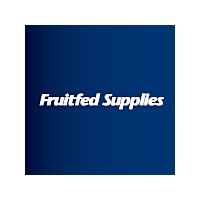
No standing still for kiwifruit growing family
Katikati kiwifruit growers Stephen Kenna and Phillipa Wright aren’t spouting a mere catchphrase when they talk about ‘continual improvement’. It’s a philosophy they have embraced for more than 30 years as the custodians of their land who implement sustainable management practices which enhance both the environment and crop quality.
Their kiwifruit growing ventures started with Stephen’s dairy farming family buying 10 ha of bare land in 1980 on which the first Hayward green vines were planted. Stephen and Phillipa took over the management of this orchard in 1989 and now, as KW Kiwi Limited, they own and manage several gold kiwifruit orchards within 20 km of their home block.
Never standing still is another apt phrase to describe Stephen and Phillipa’s energy and attention to detail through the incredible challenges of Psa and now being able to look ahead to succession planning. In recent years, their three sons, Daniel, William and James, have joined the KW Kiwi enterprise, each establishing their own specialities while working together collaboratively. Among their current projects is the redevelopment of a new green orchard purchased last year where 5 canopy ha is being converted to Sungold.
Another important initiative is the KW Kiwi team’s contribution to the Zespri imaging project which aims to make predictions of industry crop volumes and size profiles much more precise than current hand-counted estimates. Stephen and Phillipa have invested in equipment for the project and are responsible for the day-to-day operations. The camera imaging systems are mounted on low-profile, all-terrain vehicles with safety bars which good give protection to operators. The project aims to capture other information via the camera systems simultaneously, which could also be used to collect data on winter cane spacing, flower bud and early fruitlet counts.
Several philosophies underpin Stephen and Phillipa’s approach to growing quality kiwifruit, starting with being mindful of all growing practices and their impact on soil and environment.
“We ask questions, work independently and often challenge conventional thinking,” says Phillipa. “We want to perform, be profitable and be resilient, while operating sustainably and being prepared to take informed risks.”
This mindset shaped the establishment of their first green orchard on what is some of the steepest land being used for kiwifruit around the region.
“The stream and surrounding wetland at the bottom of our sloped block needed to be protected, so we planted the stream edges, particularly the northern side. Now, these native trees are 30 years old, they shade the stream as we intended, reducing water temperature, and encouraging freshwater and land creatures. We continue to plant each year. It’s only a small stretch of a longer waterway, but it all helps.”
Helping reduce water and nutrient runoff into the stream is one reason that Stephen and Phillipa opt to keep a longer grass sward throughout this orchard. They are part of the Project Parore catchment group working together to improve water quality in the northern Tauranga Harbour region and created a Farm Environment Plan (FEP) for their orchards alongside the waterways which feed into the harbour. Having an FEP is also in line with the Government's Essential Freshwater Strategy and Zespri's new standards.
The management practice of leaving longer grass under the vines also reduces the pressure of sclerotinia fungal loading. Less mowing means fewer machine movements under vines which helps reduce soil compaction.
“Any crop protection product applications are considered carefully in light of our sustainable management practices,” Phillipa says. “We haven’t used glysophate for nearly 30 years or applied fungicides for sclerotinia for around 20 years.”
Sustainability is an eight-pronged, interconnected process at KW Kiwi involving biodiversity, soil, water, air, energy, chemicals, people and business.
“Our terrain means we need good equipment, so we’ve invested in our machinery rather than needing to fit into a contractor’s schedule. We can spread fertiliser at a time that reduces the risk of run-off. We can get other jobs done on time which also support our health and safety targets to look after our people and any contract workers. Tools like the Zero Harm Farm app are part of this.”
Stephen and Phillipa’s longstanding relationship with personnel from Fruitfed Supplies also fits their interconnected approach to running their business sustainably. “We have a great relationship with our Rep Hamish Mackie and others in the Fruitfed Supplies team. Hamish is knowledgeable and provides a good service to our business.”



